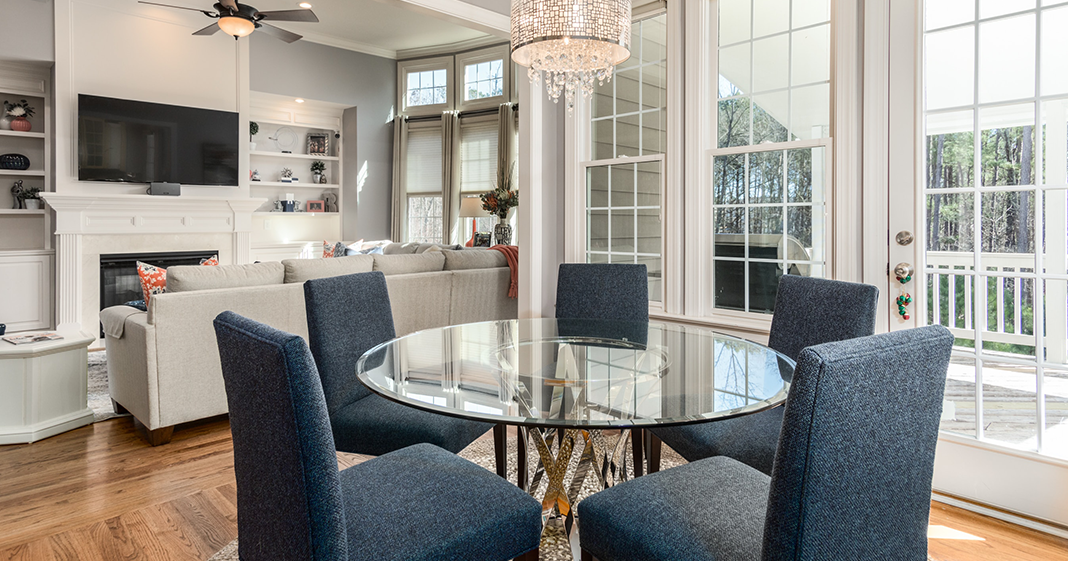How to Avoid These 8 Psychological Traps in Home Buying
Sometimes our minds deceive us into purchasing a house that isn’t a good fit for us. By using these suggestions, you may reduce buyer regret.
If you’ve ever made an impulsive purchase, you are familiar with the sensation of having your mind freeze and fixate solely on the attractive item that is in front of you and that you simply must have. If the shining item is an expensive coat, there won’t be many repercussions from going over budget to get it.
These pitfalls may result in buyer’s regret, which is surprisingly prevalent among those who purchase homes. In 2022, buyers revealed that 75% of those who had bought a house successfully in the previous two years regretted their choice at least once. These regrets included not taking the location of the bedrooms into consideration and underestimating the amount of yard labor.
Here are some typical pitfalls to watch out for.
1. Excessive confidence
You spend an hour poring over the pictures and the 3D Home tour of a house you think is ideal that you saw online. You’re so in love by the time you go to the in-person tour that you begin downplaying apparent issues. The fissure in the foundation? It appears to be really little. Are the ceiling marks left by water in the bedroom? Most likely a simple old leak. And so forth. Your partner becomes concerned as you keep saying, “We can fix that, easy.”
If that describes you and you’re not a contractor, you’ve fallen victim to overconfidence: you’re overly confident and minimize any potential harm that could result from purchasing a house that requires more repair than you can afford or handle on your own.
How to stay out of this situation
Hire a competent inspector who can identify major issues with the house and estimate the cost of fixing them. In order to offer you an estimate of what would be required to fix issues, your agent might also be able to rely on a stable of experts.
2. Ignoring your future self
Assume that you are a recent couple purchasing your first house. Since you don’t have children, pets, or a lot of belongings, you concentrate your search on houses that match your way of life. By doing this, you ignore the future and place greater value on your immediate wants than you might in the next five years or so.
How to stay out of this situation
Consider “future you” and how you envision your life developing over the next five years. If you have ambitions to have children or pets, or if you will eventually be hosting a relative, take them into consideration now, unless you want to relocate again to make room for anticipated changes in your life.
3. Not engaging in negotiations
The listing price that homeowners set for their properties usually corresponds to what they wish and expect to receive in the present market. That’s the first figure you see as a buyer, and it can even make you decide not to even consider the house. The tendency to utilize the first figure or piece of information as the starting point for decisions is known as anchoring. That being said, you might be able to bargain for a cheaper price in some regions and during some times of the year. For instance, the market is slower and sellers frequently drop the price of homes that have lingered on the market throughout the fall home shopping season.
How to stay out of this situation
Utilize your agent’s local knowledge to learn if price reductions are typical in your area. You can also see whether a seller is open to a price reduction in exchange for anything else they might be interested in, like a rent-back arrangement that would provide them time to find a new residence.
4. Impulsive behavior
Buyers should be ready to move fast to submit an offer on a property they want when there is intense competition for available properties. However, moving swiftly once you’ve established your purchasing budget, decided what features are essential, and secured preapproval from a lender is not the same as acting impulsively because there aren’t enough houses on the market.
How to stay out of this situation
Get your credit in good standing as the first step in preparing to buy. Collaborate with your loan officer and agent to comprehend the housing market, your affordability, and the qualities of a house that best meets your requirements.
5. Ignoring facts that contradict our views
This is referred to as confirmation bias, and it occurs when we either ignore information that contradicts our preexisting ideas or give more weight to information that does. For instance, you would be paying a much higher rate today if you continued to believe that interest rates would fall sharply this year and postponed purchasing a home as a result.
How to stay out of this situation
Keep abreast of market developments and make use of your agent’s knowledge. Not even market specialists are able to predict interest rates or housing values with any degree of confidence. Seek for and take into consideration material that contradicts your views rather than ignoring it in your decisions.
6. Being stuck in the past
Let’s say that while you’re house hunting, your happy childhood recollections are so strong that they keep you from even considering a different kind of house than the one you grew up in. You ignore your partners’ entreaties to make concessions and at least have a look at a few other residences while you spend hours searching for the ideal duplicate.
How to stay out of this situation
Consider your ideal home’s atmosphere and the things you may do to create it. Maybe certain tiles, paint colors, or even a home’s layout can bring back the sentimentality you’re looking for.
7. Concentrating on a single issue and failing to see the wider picture
Many of us have had the sensation of becoming so invested in something that we overlook or downplay some clear warning signs. For example, if your house has a yard that needs a lot of maintenance, you might fall hard for an outdoor kitchen. Even though you detest yard labor, you decide to buy the house nonetheless, figuring it won’t be a huge deal. However, you wind up having to mow the yard for an hour every weekend. Perhaps you become preoccupied with the idea of your children or dogs having a yard to play in, to the point where you fail to imagine what it would be like to travel an hour to and from work.
How to stay out of this situation
Before you go house buying, make a list of the things you want and don’t want in a house, and keep to it. You won’t fall in love with yard labor or long commutes just because you have a large yard or a nice outdoor pizza oven.
8. Choosing to go forward with a purchase since you’ve invested time and money in locating it
Finding a house you love, writing an offer, applying for a loan, scheduling inspections, and then learning thereafter that the house has an irreversible fault may be heartbreaking. After searching for so long, you could even believe that you’ll never find a new place to call home.
How to stay out of this situation
Consider the big picture. In five, ten, or even fourteen years, picture yourself residing in the house. Will the defect make you lose your mind? Consider the additional things you’ll have to give up if the fault is expensive to correct.
Logic and feelings
Sometimes it’s difficult to buy a home because we have to balance our emotions and our heads. Setting boundaries for yourself and getting quality knowledge can help you reconcile the two.
Making decisions is wonderful because, in the end, only you can determine what’s best for you. Have faith in your instincts. You’re probably well on your way to starting the next phase of your life if you’ve done all the necessary preparation, including answering the proper questions, relying on reliable information, paying attention to trusted counsel, and assessing the level of risk involved.









Leave a Reply